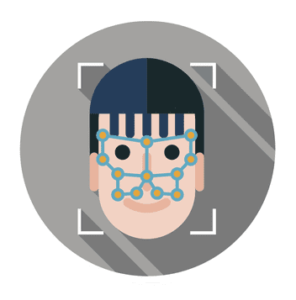 As controversy over the public use of facial recognition continues, Microsoft is following Google’s lead in laying out its approach to the ethics of the technology in a new blog post by the company’s President, Brad Smith.
As controversy over the public use of facial recognition continues, Microsoft is following Google’s lead in laying out its approach to the ethics of the technology in a new blog post by the company’s President, Brad Smith.
It’s a far less concise and straightforward accounting than the one laid out by Google CEO Sundar Prichai, which listed seven ethical principles governing Google’s work in artificial intelligence, such as “Be socially beneficial,” and “Be accountable to people.” Smith begins by emphasizing that it is the government that should be regulating the use of facial recognition technology, not private industry; and he also stresses that previous reports about Microsoft being a facial recognition vendor to US Immigration and Customs Enforcement misrepresented the company’s work with ICE, which revolved around supporting the agency’s bureaucracy.
Eventually, though, Smith gets to the ‘tech sector responsibilities’, outlining four. The first is the need to reduce bias in facial recognition technology, an effort toward which Microsoft gestured last month in a blog post concerning its own technology.
Second is the need for transparency in facial recognition work, with Smith asserting that Microsoft “will build on our broader commitment to design our products and operate our services consistent with the UN’s Guiding Principles on Business and Human Rights.”
Third is Smith’s commitment to take a more considered and deliberate approach to facial recognition projects. “This has led us to turn down some customer requests for deployments of this service where we’ve concluded that there are greater human rights risks,” he says, adding that Microsoft will “continue to monitor the potential uses of our facial recognition technologies with a view to assessing and avoiding human rights abuses.”
And finally, Smith says Microsoft is “committed to participating in a full and responsible manner in public policy deliberations relating to facial recognition.” It isn’t clear how this principle differs from Microsoft’s commitment to transparency; nevertheless, Smith emphasizes that Microsoft is “committed to serving as a voice for the ethical use of facial recognition and other new technologies, both in the United States and around the world.”
While Smith frames these guiding principles from the outset as applying not only to Microsoft but to the tech sector more broadly, they may nevertheless be appreciated by some privacy and civil rights advocates as a step in the right direction for one of the biggest companies in the world that is working in AI and facial recognition technology.
Source: Microsoft On the Issues Blog
–
July 16, 2018 – by Alex Perala







Follow Us